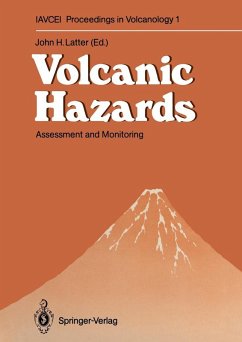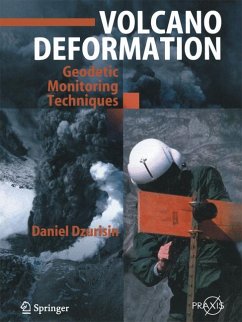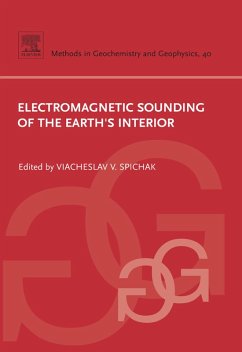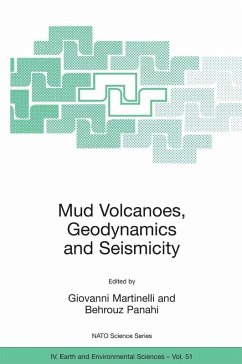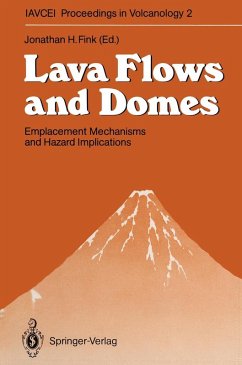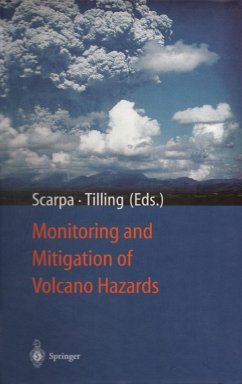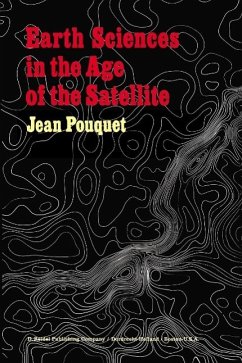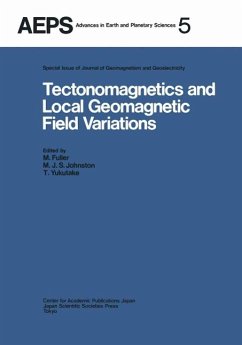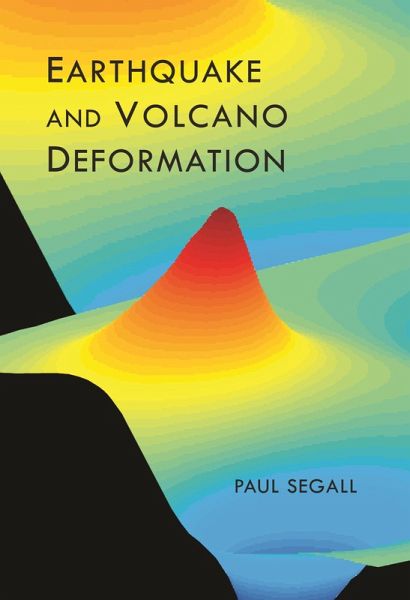
Earthquake and Volcano Deformation (eBook, PDF)
Versandkostenfrei!
Sofort per Download lieferbar
77,95 €
inkl. MwSt.
Weitere Ausgaben:

PAYBACK Punkte
39 °P sammeln!
Earthquake and Volcano Deformation is the first textbook to present the mechanical models of earthquake and volcanic processes, emphasizing earth-surface deformations that can be compared with observations from Global Positioning System (GPS) receivers, Interferometric Radar (InSAR), and borehole strain- and tiltmeters. Paul Segall provides the physical and mathematical fundamentals for the models used to interpret deformation measurements near active faults and volcanic centers.Segall highlights analytical methods of continuum mechanics applied to problems of active crustal deformation. Topic...
Earthquake and Volcano Deformation is the first textbook to present the mechanical models of earthquake and volcanic processes, emphasizing earth-surface deformations that can be compared with observations from Global Positioning System (GPS) receivers, Interferometric Radar (InSAR), and borehole strain- and tiltmeters. Paul Segall provides the physical and mathematical fundamentals for the models used to interpret deformation measurements near active faults and volcanic centers.
Segall highlights analytical methods of continuum mechanics applied to problems of active crustal deformation. Topics include elastic dislocation theory in homogeneous and layered half-spaces, crack models of faults and planar intrusions, elastic fields due to pressurized spherical and ellipsoidal magma chambers, time-dependent deformation resulting from faulting in an elastic layer overlying a viscoelastic half-space and related earthquake cycle models, poroelastic effects due to faulting and magma chamber inflation in a fluid-saturated crust, and the effects of gravity on deformation. He also explains changes in the gravitational field due to faulting and magmatic intrusion, effects of irregular surface topography and earth curvature, and modern concepts in rate- and state-dependent fault friction. This textbook presents sample calculations and compares model predictions against field data from seismic and volcanic settings from around the world.
Earthquake and Volcano Deformation requires working knowledge of stress and strain, and advanced calculus. It is appropriate for advanced undergraduates and graduate students in geophysics, geology, and engineering.
Professors: A supplementary Instructor's Manual is available for this book. It is restricted to teachers using the text in courses. For information on how to obtain a copy, refer to: http://press.princeton.edu/class_use/solutions.html
Segall highlights analytical methods of continuum mechanics applied to problems of active crustal deformation. Topics include elastic dislocation theory in homogeneous and layered half-spaces, crack models of faults and planar intrusions, elastic fields due to pressurized spherical and ellipsoidal magma chambers, time-dependent deformation resulting from faulting in an elastic layer overlying a viscoelastic half-space and related earthquake cycle models, poroelastic effects due to faulting and magma chamber inflation in a fluid-saturated crust, and the effects of gravity on deformation. He also explains changes in the gravitational field due to faulting and magmatic intrusion, effects of irregular surface topography and earth curvature, and modern concepts in rate- and state-dependent fault friction. This textbook presents sample calculations and compares model predictions against field data from seismic and volcanic settings from around the world.
Earthquake and Volcano Deformation requires working knowledge of stress and strain, and advanced calculus. It is appropriate for advanced undergraduates and graduate students in geophysics, geology, and engineering.
Professors: A supplementary Instructor's Manual is available for this book. It is restricted to teachers using the text in courses. For information on how to obtain a copy, refer to: http://press.princeton.edu/class_use/solutions.html




